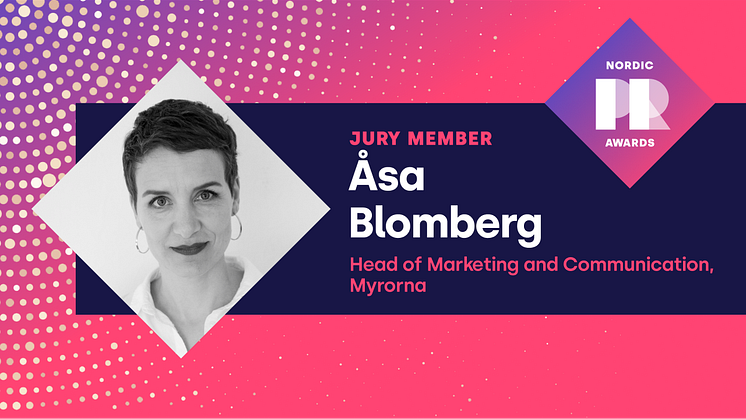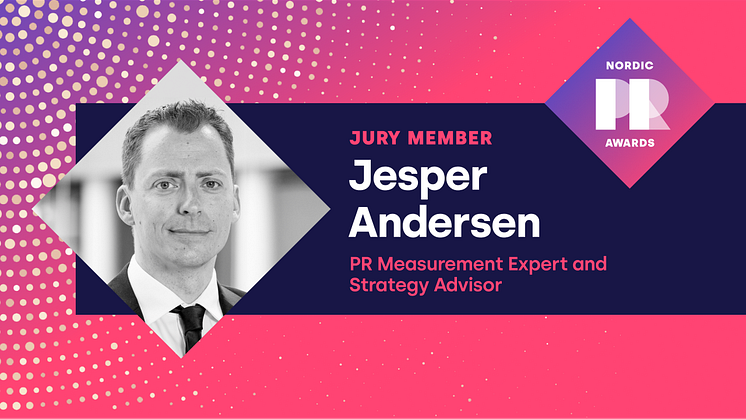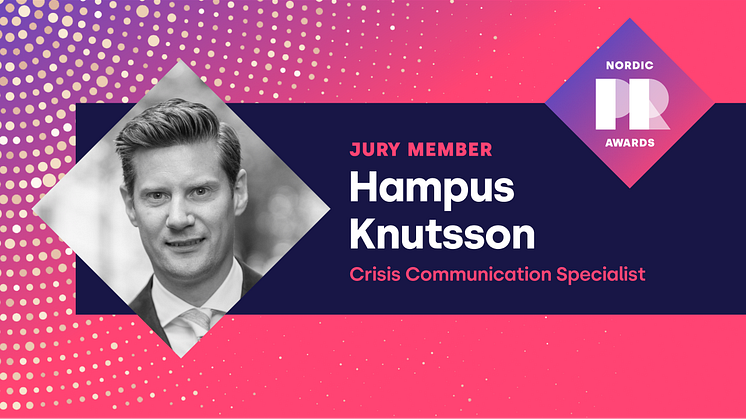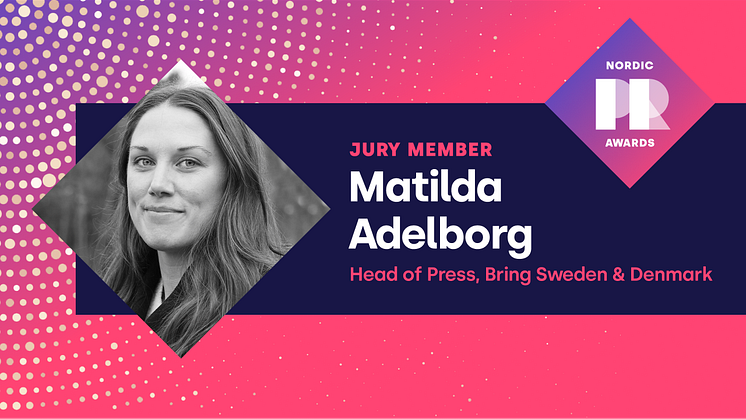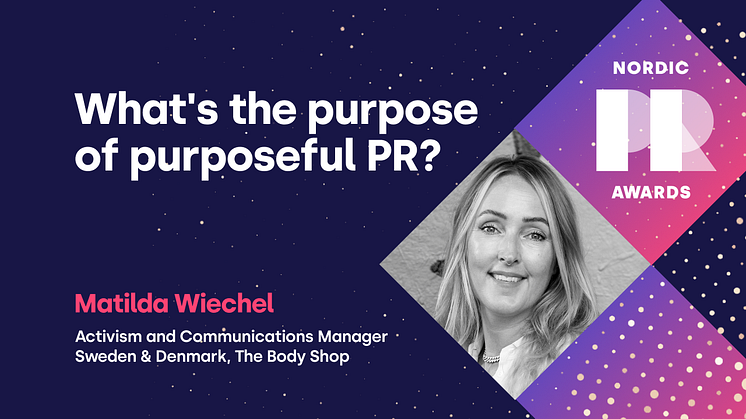
Blog post -
What's the purpose of purposeful PR?
Never before have brands communicated so much about sustainability and purpose. And never so poorly. Consumers have never been more confused about what is actually what in brands sustainability communication.* The term purpose driven is used to the extent of losing its own purpose. So is there any reason to keep going?
Purpose driven companies grow three times faster than competitors on average.* There are many consumers today that wants to support companies that have a purpose that stretches beyond profit and have a clear focus on sustainability. And speaking of sustainability includes environmental, social, and equal initiatives that aim to drive change.
This leads us to today’s buzzword: purpose driven PR, where businesses all over the world focus on social and environmental topics.
By authentically embracing corporate social responsibility, you can attract socially conscious consumers and create a positive impact, all while boosting your sales and bottom line. Many brands also choose to partner with charities to enable their consumers and networks to contribute to an international cause. This embrace of purposeful comms however is not sustainable in itself without trust and authenticity. Handy PR tips will tell you that building trust is paramount before attempting to convey your authenticity.
That’s probably true but won’t create any actual change as change starts with authenticity.
Therefore it is never a good idea to overrate your brand or product (how climate neutral is climate neutral really? And what does climate regenerative even mean when decoding it?) Here it is always better to underpromise and overdeliver.
Transparent communication, ethical practices and a commitment to delivering on promises is a good start.
Next step is the actual purpose itself. We will need to be better than letting purpose become a branding tactic or just another buzzword. This includes being ready to work hard to turn words into action.
To take the next step and act, more companies will have to take a leap of faith and trust that by acting authentic, your community will want to maintain their trust in, and relationship with, your brand.
Some companies are driven forward by profitability only. Luckily there is also a growing community of companies that realizes that profitability and sustainability needs to work in balance if there is going to be a planet for the companies to be profitable on.
To ensure that purpose is really becoming a part of your company’s body, sustainability initiatives need to have full recognition all the way internally from sales reps to the management team. It also has to be implemented in the corporate strategy as well as in the measurable business objectives.
“The business of business should not be about money. It should be about responsibility. It should be about public good, not private greed.”*
These are words from the environmental and social activist that founded The Body Shop. Words that inspired me to want to work where I am today.
So how to progress from words to actions? Corporate activism is one of the most efficient ways for brands to fulfill their purpose and to communicate it internally and externally. Corporate activism can be about signing petitions, protesting and standing on the barricades. But it is much wider than that and takes all kinds of shapes.
Just as the activism concept itself, corporate activism inspires social or political change. It is about standing up for something, often an injustice that needs to change.
How to get started? How to keep motivated?
First and always: to be a successful changemaker is to continue to inform and educate yourself and the collective internally.
Do you know your community well enough to know what your customers and community really care about? What upsets and engages them?
Should you focus on equality? Environmental issues? Both? What could your brand engage in that aligns with your purpose?
The more transparent we are in our communication the more we invite our community to engage, question and challenge us.
When we encourage people to sign that petition, swap to refill etc. while at the same time keep being nudged by our community's challenges to us, we create a dialogue of behavioral nudging both internally and externally that will actually drive change. Sometimes small and sometimes in big leaps. And all the steps count.
This relationship of nudging is probably the biggest challenge and the most valuable asset we can create with purposeful communication.
So…
The purpose of purposeful PR is to get the public informed, then outraged, then inspired and hopefully in the end to get active.
--
Matilda Wiechel,
Activism & Communications Manager The Body Shop Sweden and Denmark
*
Source 1: Sustainable Brand Index 2019
Source 3: Quote Anita Roddick





